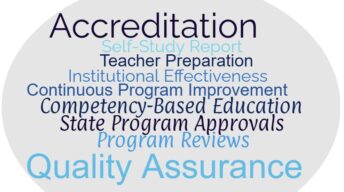Back in the day when I wore the uniform of Girl Scout I worked hard to earn those coveted merit badges, so I could proudly display each one on my sash. When others recognized them, they understood that I had demonstrated skill in certain areas such as first aid, sewing, camping, and music. Now granted, performance evaluation standards were built with a whole lot of room for subjectivity, because to tell you the truth there were times I know my troop leaders had to close at least one eye in order to place their stamp of approval on my work. I recall one particular instance when I set my sights on the cooking badge—I told myself I was ready because I had a LOT of experience in the kitchen already making PBJs and bowls of cereal. I thought I was ready for a bigger challenge, and that’s when I got the bright idea of baking a cake for the first time. Ever. Two other girls in my grade had baked cakes to earn their badge so I figured, “How hard could it be?” Of course, being the natural born competitor that I am, I decided I would up the ante and bring my A-game to this event: I determined it would not be good enough to simply bake a cake like those other girls—noooooo—I wanted to make one that would dazzle and impress my troop, thereby setting the gold standard for all future cake baking. I decided to bake an orange, four-layer cake. In my mind it was going to be awesome.
Long story very short, I made a few slight miscalculations in my readiness to pull off such a feat, including the importance of allowing the cake layers to cool before attempting to frost and assemble. The result was four steaming cake layers covered in runny orange goop sliding all over the kitchen and onto the floor in a million pieces, plus a mother who nearly had a nervous breakdown. So, you may ask, “Did she ever get her cooking badge?” Yep—but let’s just say to this day I still owe my grandma big time. ‘Nuff said.
So, what’s the point of all this rambling and reminiscing about merit badges? I really am leading up to something here, which is the notion of demonstrating what we know and are able to do in specific areas, and then receiving recognition or credit for those skills in the form of digital credentials or badges. This concept has started to gain traction in the past couple of years or so and I don’t see it going away. Why should it? It’s a really good idea.
That’s why in partnership with digital credential provider Credly, the American Council on Education has recently announced plans to evaluate skills learned in the workplace. In essence, the goal is to create a system whereby skills are formally evaluated by an external reviewer—in this case, Credly—resulting in an opportunity for workers to build a set of digital credentials (or badges) that can be used for internal promotion in connection with company performance evaluations. In addition, the credentials would be portable, meaning those workers would be able to provide evidence of their skill set should they seek employment elsewhere. It’s even possible that in some instances, digital credentials could be aligned to certain college courses, thereby opening the door for individuals to earn college credit by demonstrating what they know and are able to do at work.
This concept stems from the competency-based education model, sometimes referred to as proficiency-based, mastery-based, or personalized learning. The CBE model is catching on quickly at the higher education level and now in some states, at the P-12 level. It’s just natural that the notion of demonstrating one’s proficiency in specific skills (or competencies) can apply just as effectively in the workplace.
The merit badges for Girl Scouts have improved significantly over the years, giving today’s youngsters the opportunity to demonstrate their skills in areas such as writing a business plan; digital movie making; outdoor art apprentice; and new cuisines. Kind of makes me want to see if I could squeeze into that uniform again and give it another go.
–rrf
Dr. Roberta Ross-Fisher is a national leader in educator preparation, accreditation, online learning, and academic quality assurance. An accomplished presenter, writer, and educator, she currently supports higher education, P-12 schools, and non-profit agencies in areas such as competency-based education, new program design, gap analysis, quality assurance, leadership, outcomes-based assessment, and accreditation through her company, Global Educational Consulting, LLC. She also writes about academic excellence and can be contacted for consultations through her blog site (www.robertarossfisher.com).




